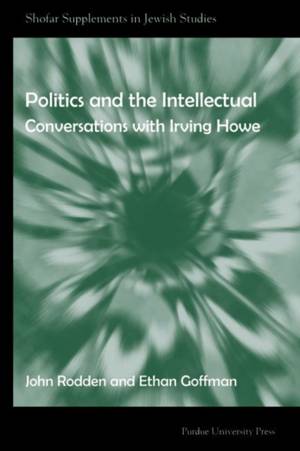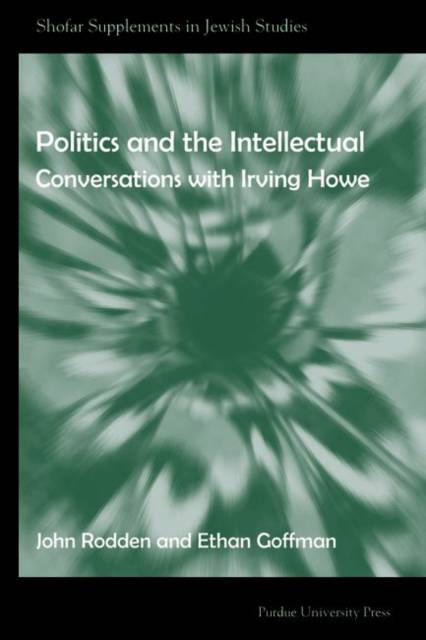
- Afhalen na 1 uur in een winkel met voorraad
- Gratis thuislevering in België vanaf € 30
- Ruim aanbod met 7 miljoen producten
- Afhalen na 1 uur in een winkel met voorraad
- Gratis thuislevering in België vanaf € 30
- Ruim aanbod met 7 miljoen producten
Zoeken
Politics and the Intellectual
Conversations with Irving Howe
€ 52,45
+ 104 punten
Omschrijving
Presented here is a compilation of Irving Howe's interviews during the last fifteen years of his life that could be viewed as the sequel to his intellectual autobiography, A Margin of Hope. Many of these interviews were never published. Others were originally published in such venues as The New York Times, The Jerusalem Post, and the PBS documentary Arguing the World. Howe never organized his thoughts about the great renown of the last fifteen years of his life, during which he had resounding success with World of Our Fathers, received a MacArthur Fellowship, and became widely regarded as the leading left-liberal intellectual in the United States and, arguably, the leading literary critic in America. During this time, Howe also struggled to redefine the American Left in an environment that discounted and marginalized it. These interviews may have particular significance today, a period of new opportunities for the liberal Left, yet one in which it struggles to construct some coherent identity and program.
Specificaties
Betrokkenen
- Uitgeverij:
Inhoud
- Aantal bladzijden:
- 400
- Taal:
- Engels
- Reeks:
Eigenschappen
- Productcode (EAN):
- 9781557535511
- Verschijningsdatum:
- 15/02/2010
- Uitvoering:
- Paperback
- Formaat:
- Trade paperback (VS)
- Afmetingen:
- 147 mm x 226 mm
- Gewicht:
- 612 g

Alleen bij Standaard Boekhandel
+ 104 punten op je klantenkaart van Standaard Boekhandel
Beoordelingen
We publiceren alleen reviews die voldoen aan de voorwaarden voor reviews. Bekijk onze voorwaarden voor reviews.










